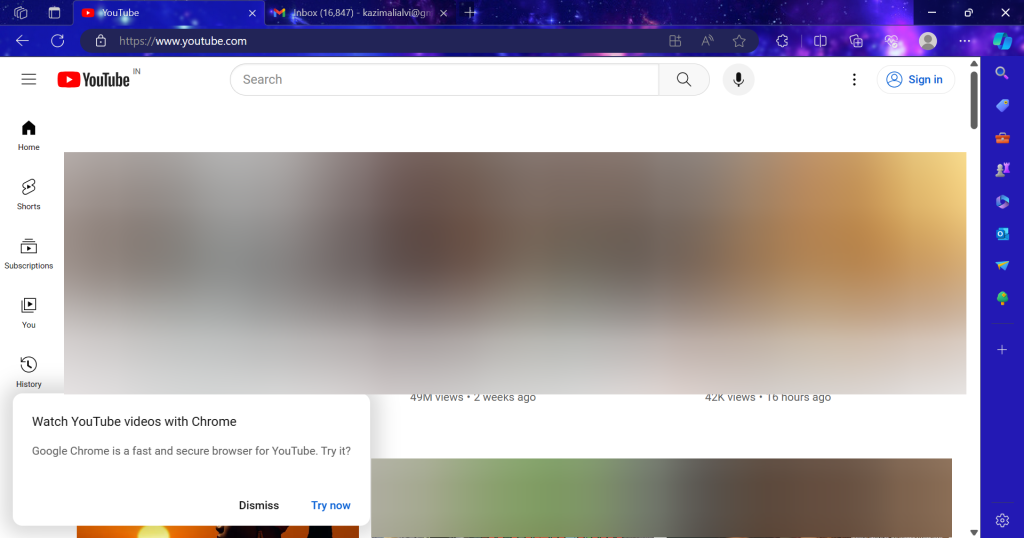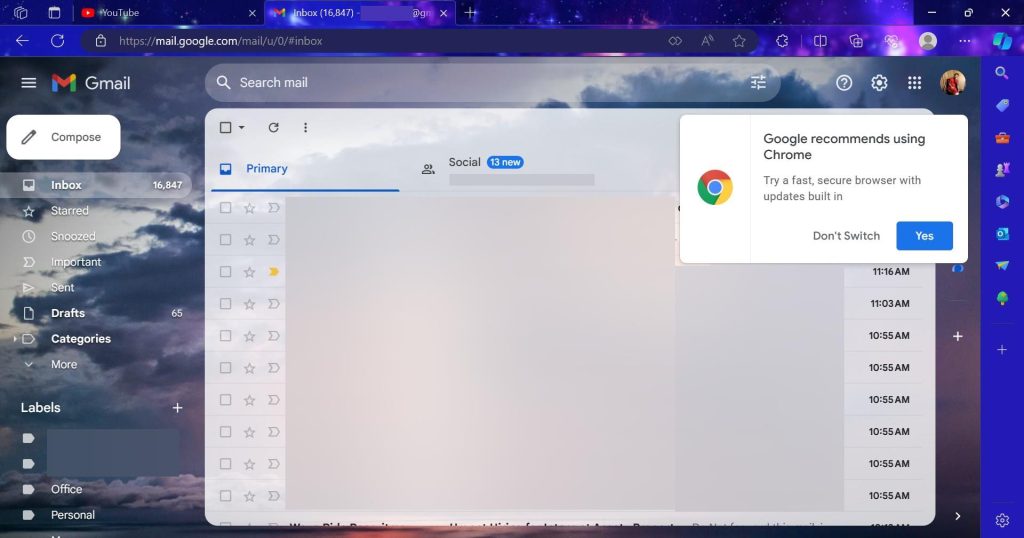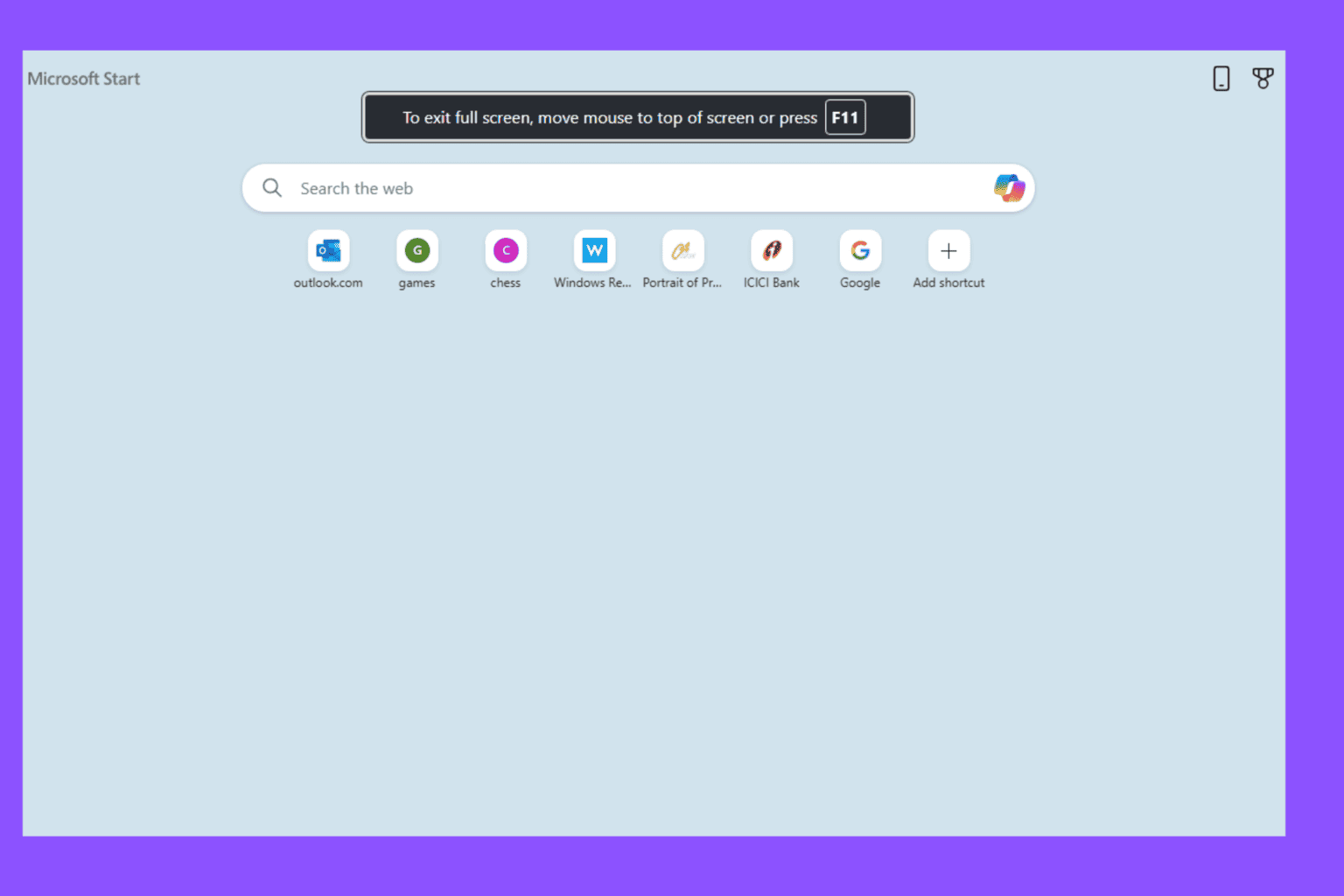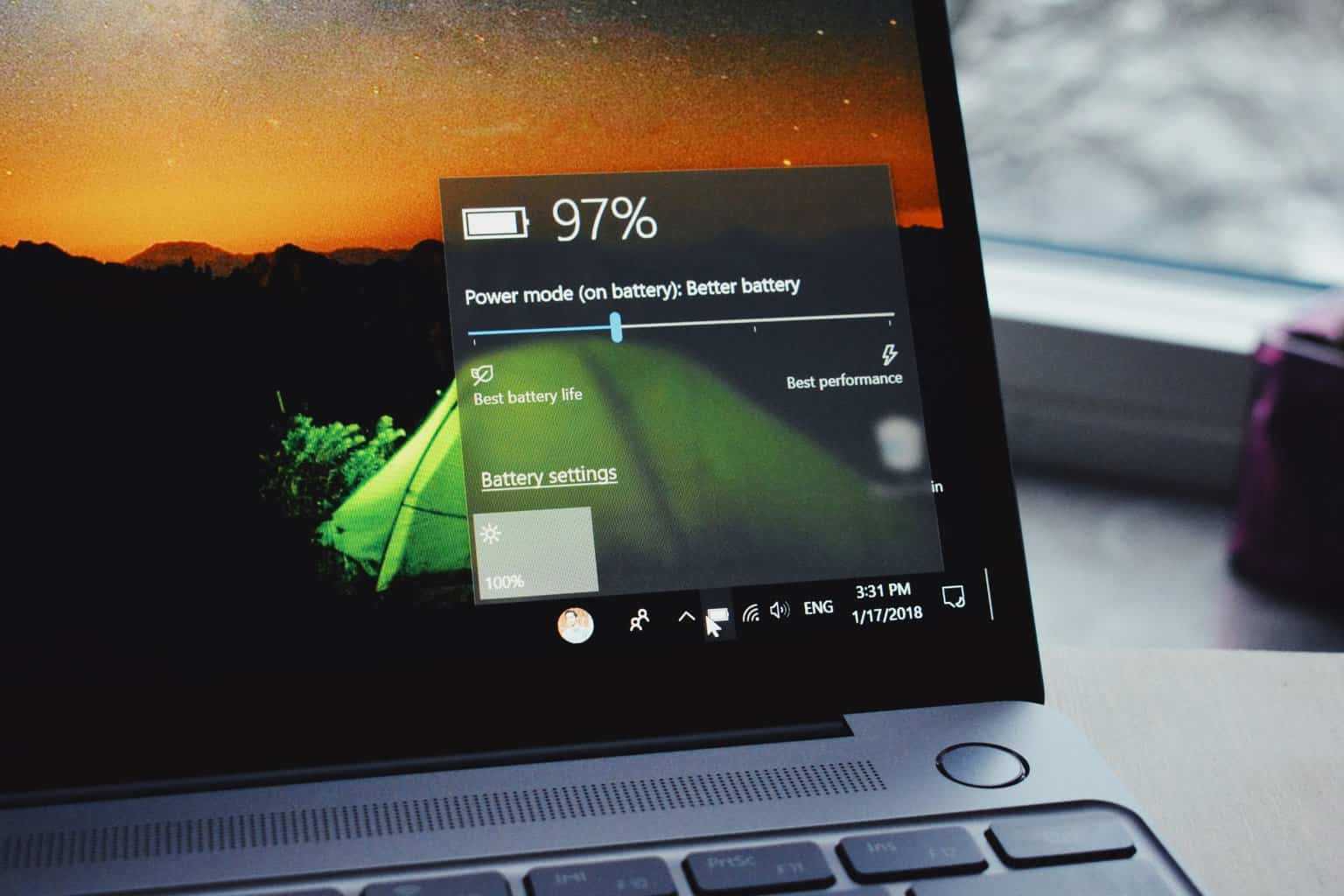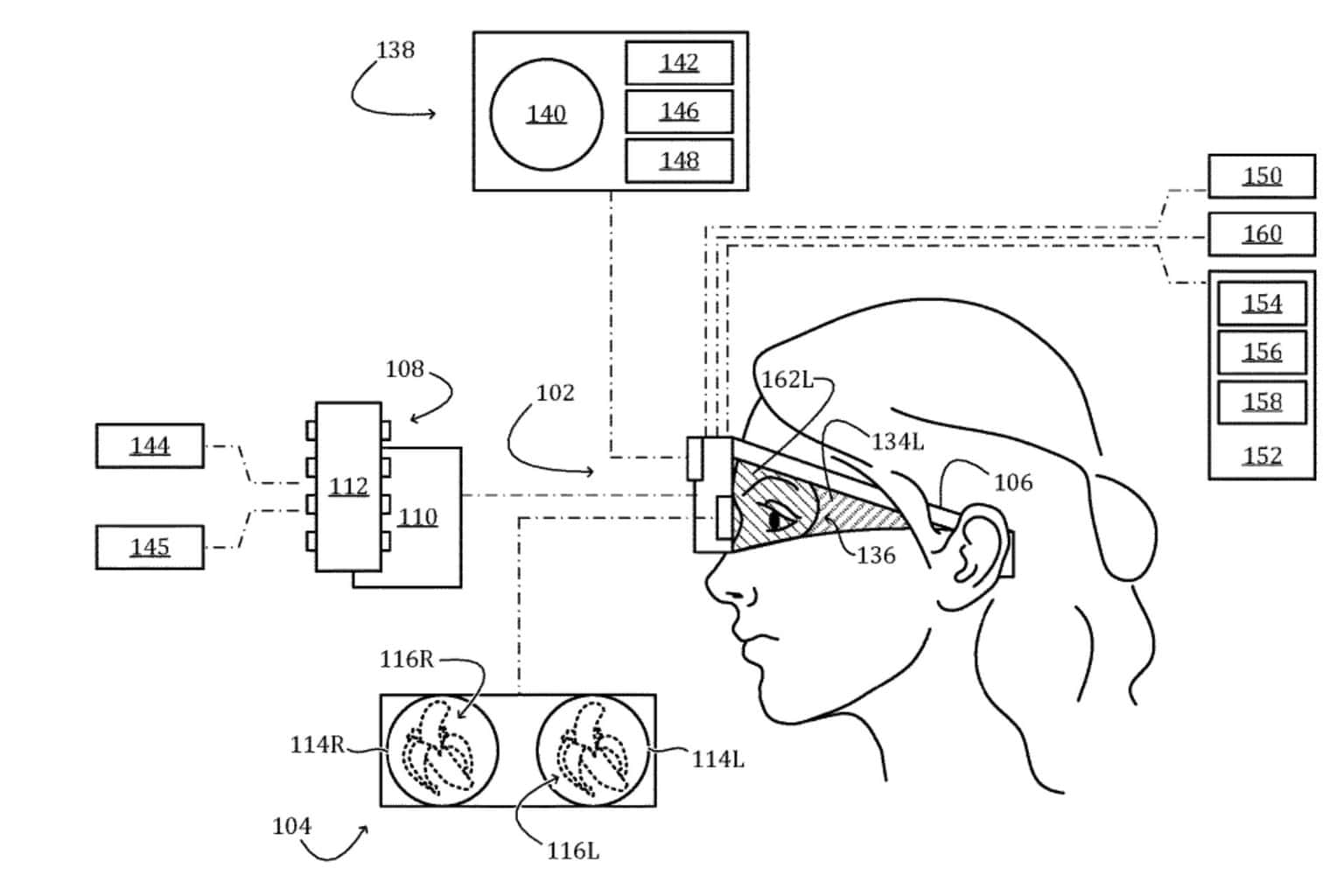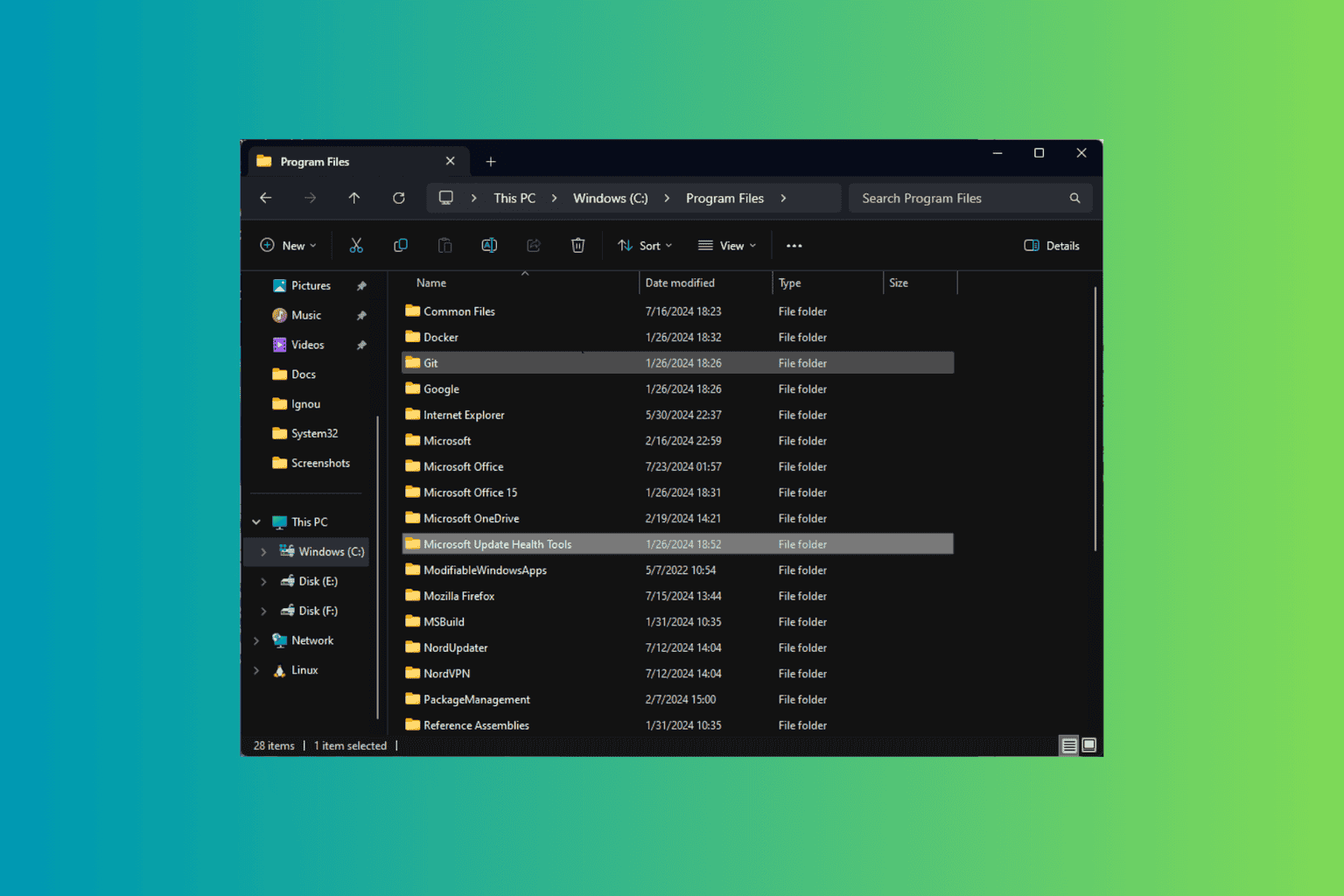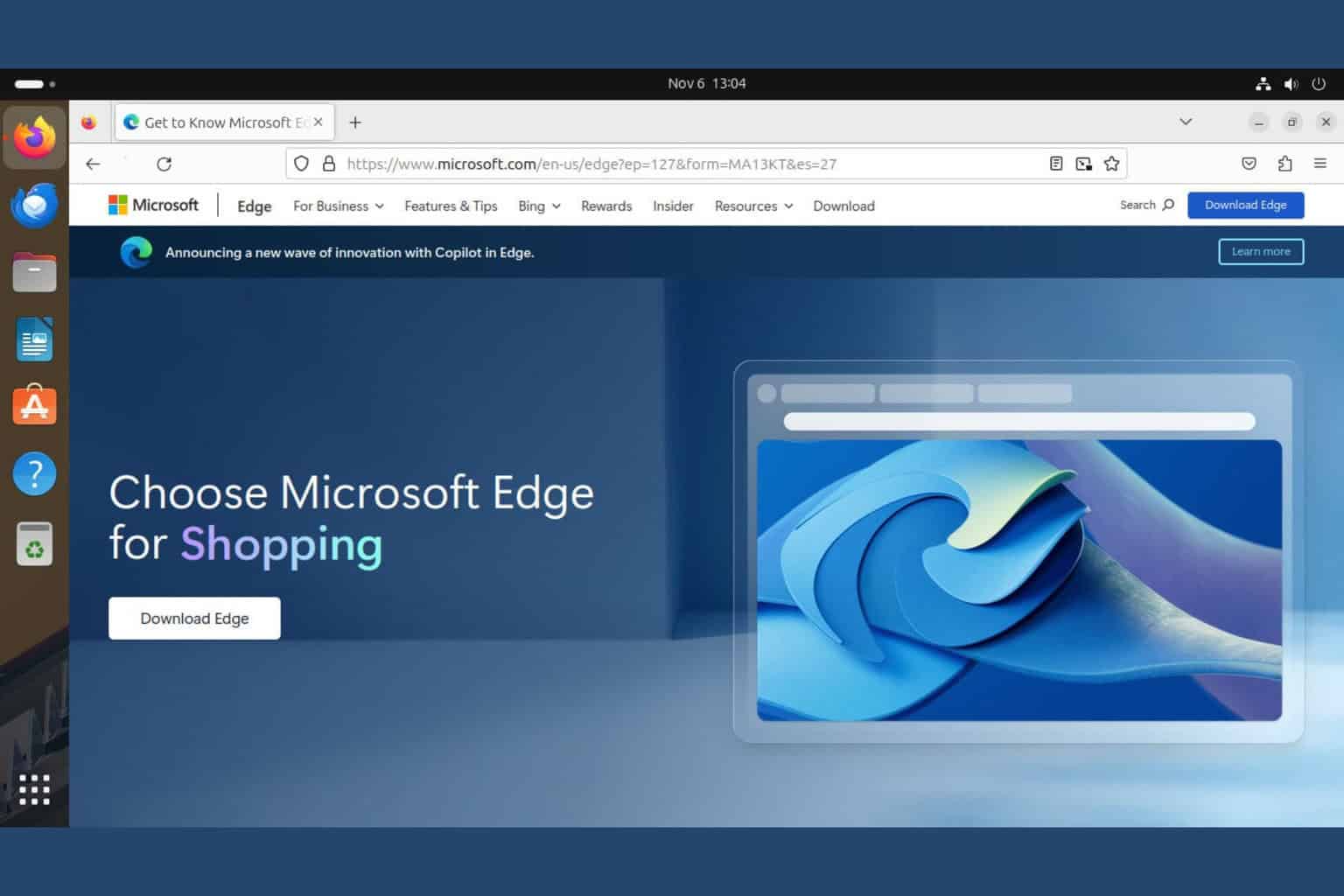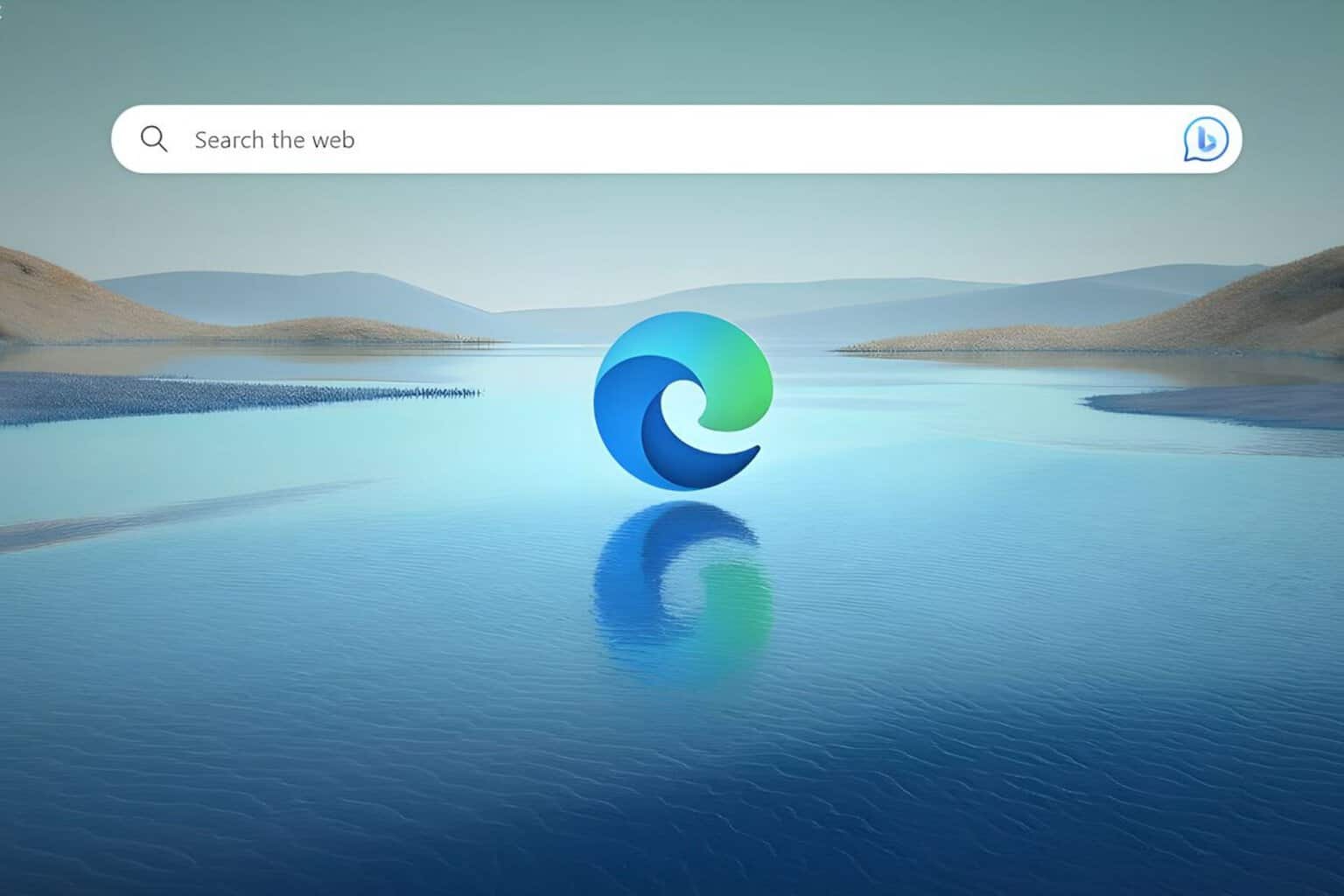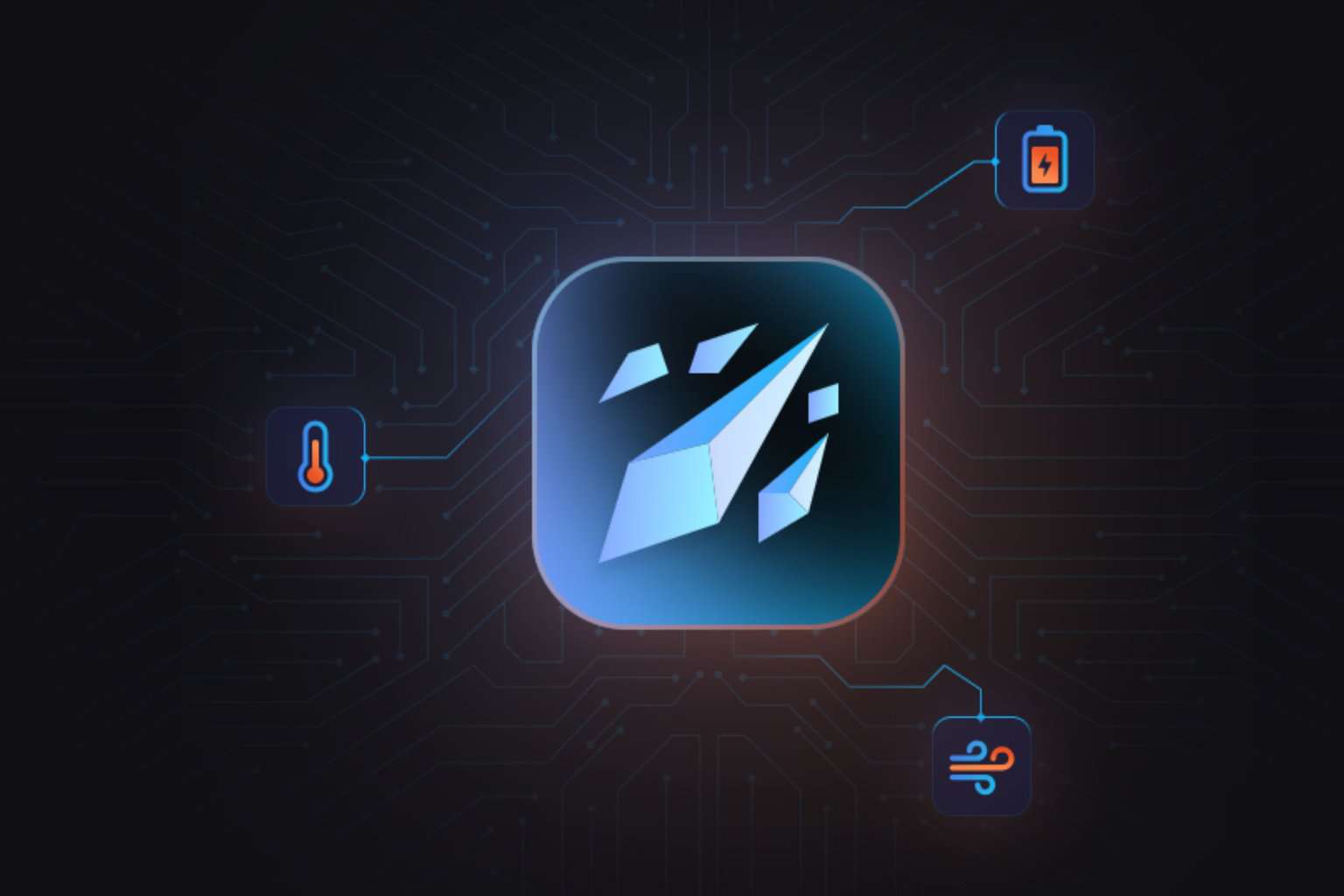Microsoft's Bing banner promotes Edge, recommends against downloading Chrome, Tor, or Vivaldi
It didn't pop up for Firefox, Brave, or Opera
3 min. read
Published on
Read our disclosure page to find out how can you help Windows Report sustain the editorial team Read more
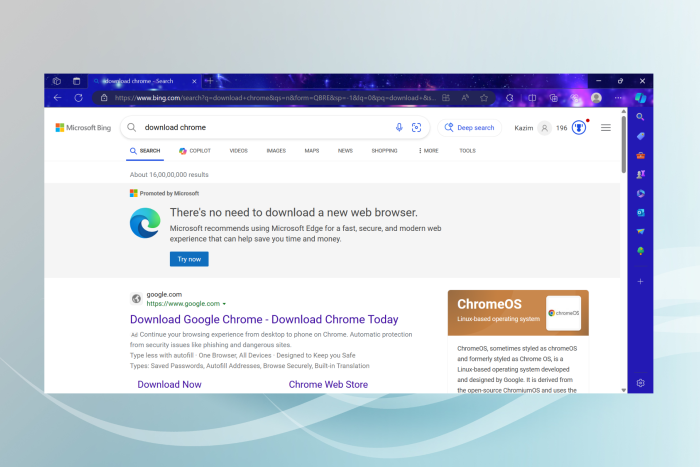
Microsoft’s promotional tactics have been under fire for the last few years, be it for Edge, Bing, or other native tools. But when it comes to the browsers, the Redmond-based tech giant takes things to another level. Microsoft shows banners promoting Edge on Bing whenever you try downloading another browser.
When I tried searching for Chrome on Bing, irrespective of the current browser, the banner read,
There’s no need to download a new web browser. Microsoft recommends using Microsoft Edge for a fast, secure, and modern web experience that can help save you time and money.
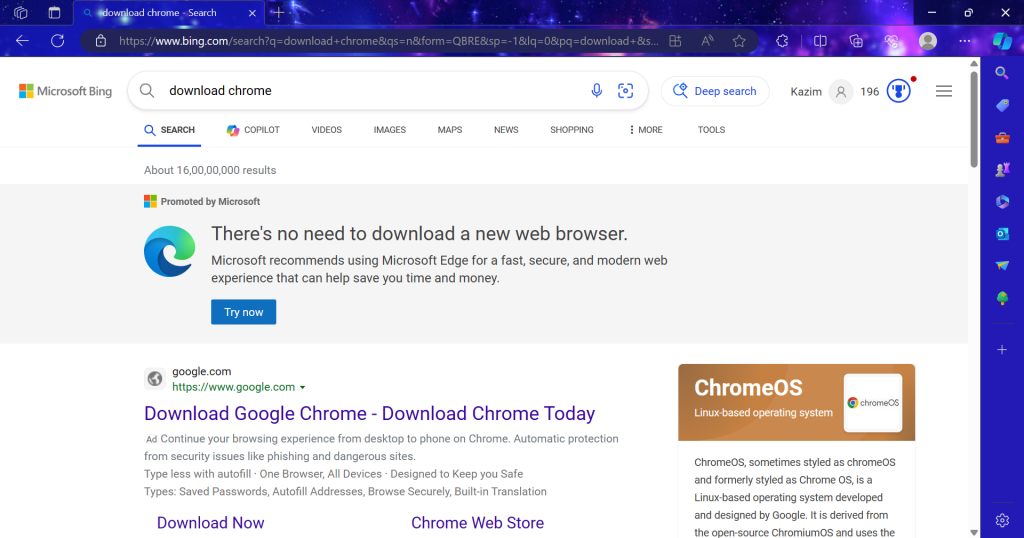
The same banner appeared when trying to search for Safari, Tor, and Vivaldi. I didn’t find one for Firefox, Brave, or Opera. This is surprising because the latter are just as promising, especially Brave.
Remember, this isn’t new. Microsoft had tried such antics in the past, but none really yielded positive results.
For instance, last year, Microsoft displayed another banner on the Thank You page when you downloaded Chrome Canary from Edge. It basically highlighted that the two browsers run on the same technology, but Microsoft Edge is a more secure and trustworthy option.
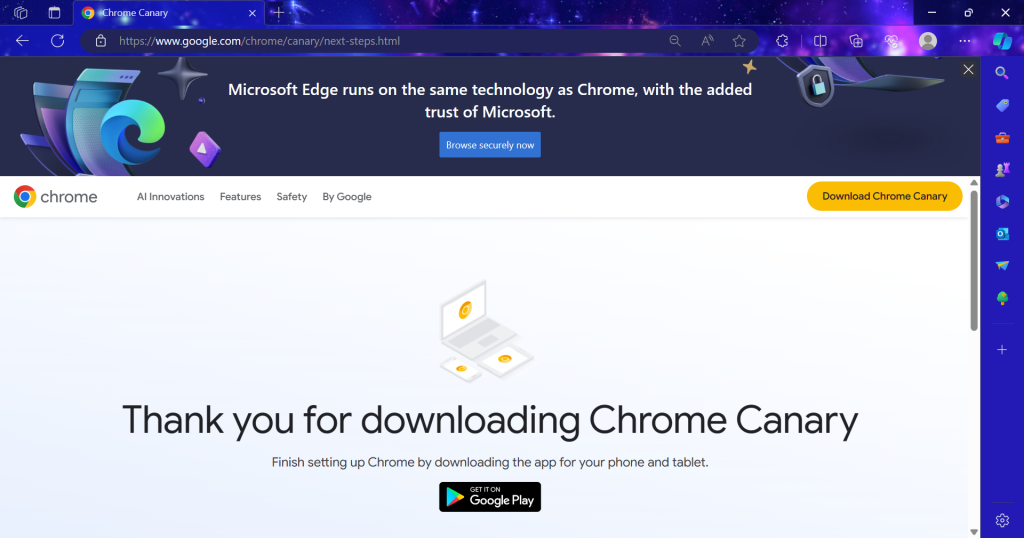
A research paper published by Mozilla in January’24 sheds more light on how Microsoft’s actions violate ethics and are unfair to users and other developers. Excerpts from the summary should give you a basic idea of the findings.
In this report, two independent experts investigate Microsoft’s design practices across its core operating systems (Windows 10 and 11), web browser (Edge), and search engine (Bing). Examining these patterns first-hand, and referring to a harmful design taxonomy evolved over many years and supported by academic research, we find Microsoft repeatedly uses harmful design to influence users into using Edge.
We judge that Microsoft cannot justify the use of these techniques, and should stop using them immediately. If they do not, we would welcome – where the law provides for it – regulatory intervention to protect against these harms.
Chrome does pretty much the same thing
Seems like Microsoft is not the only one using unethical ways to promote the native browser. Google also uses its influence to increase Chrome’s user base!
Say, if you visit YouTube from a browser other than Chrome, there will be a popup promoting Google’s native browser.
A similar popup was observed on Gmail.
So, it is not just Microsoft. The two tech giants, Google and Microsoft, have similar tactics to keep users from switching browsers
In this whole Microsoft Edge vs Google Chrome battle, browsers like Opera, Firefox, and Brave are emerging as viable alternatives because they are much less intrusive and offer pretty much the same feature set, if not more.
Besides, we will have to wait another few years to find out if Microsoft Edge’s promotional banners on Bing help because, so far, the browser’s market share has been pretty much stagnant. At present, Chrome dominates the PC browser landscape with a 65.77% market share while Edge stands second at just 12.71%, as per Statcounter.
What do you think of Microsoft’s banners for Edge on Bing or Google following a similar approach? Share with our readers in the comments section.

